THE PEOPLE HAVE SPOKEN: KABF celebrates 30 years of community radio
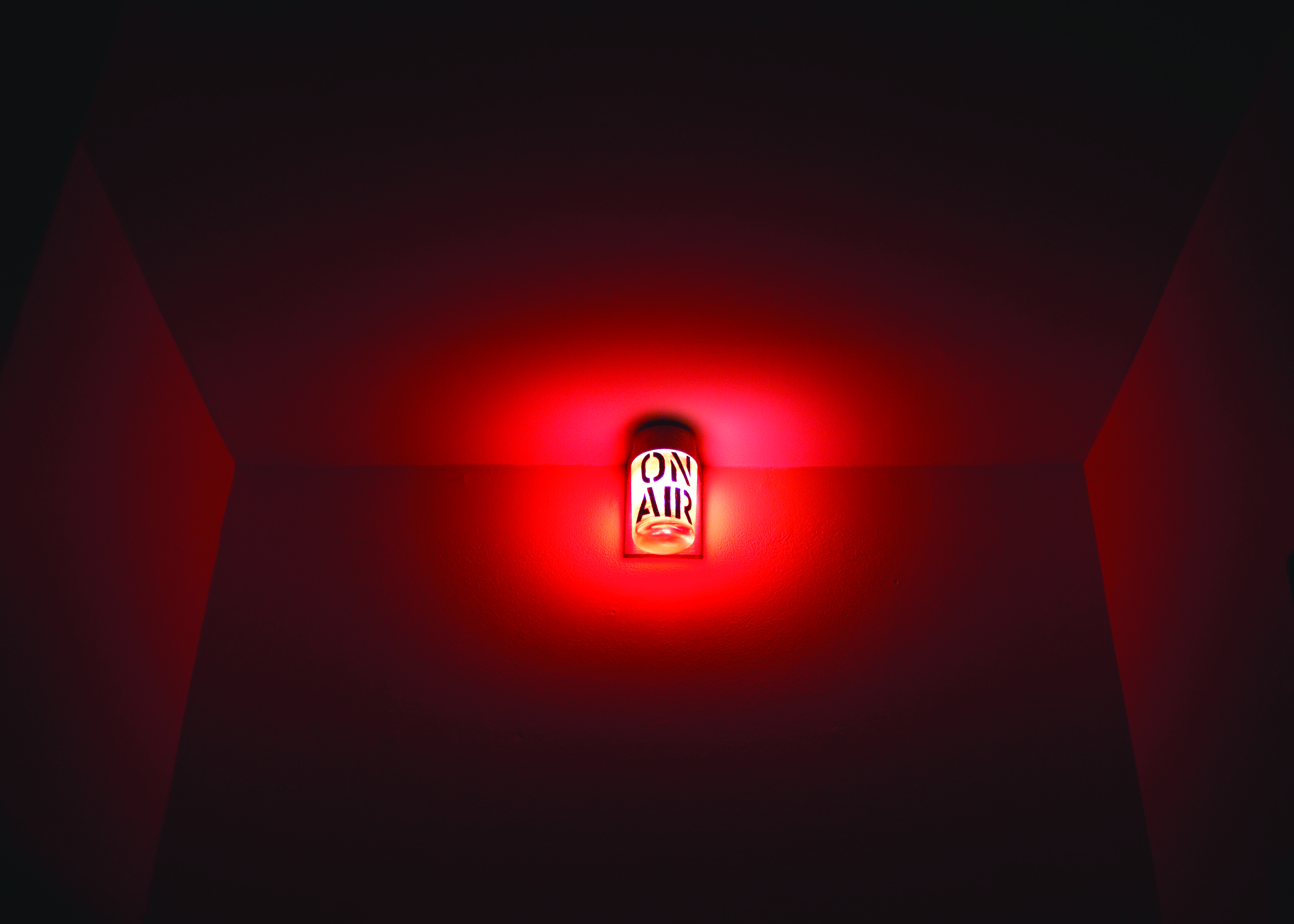
WORDS / KATHERINE WHITWORTH
PHOTO / KATIE CHILDS
‘I didn’t pre-listen to this, guys, so…” It’s early on a weekday morning, and Amy Pannell, host of Little Rock-based community radio station KABF’s morning talk show “The Pow Wow with Amy Pannell,” has just uttered words that in moments will prove to be foreshadowing in the way every on-air personality dreads.
Joan Rivers is in the hospital, and Pannell, herself a comedian, has queued up a clip of Rivers’s stand-up as a tribute. By way of introduction, Pannell gives the quiet warning, seemingly more to her co-hosts than to the listening audience.
The Rivers bit rolls, and, inevitably, F-bombs begin to fly — unbleeped. Whoops. Pannell shuffles Rivers off the air at the end of the next one-liner and attempts some breezy humor, which is pretty much the only thing a radio host can do after she realizes she’s inadvertently (though not unavoidably) violated the most obvious and commonly known of the FCC’s regulations.
“That was my mistake, and it shouldn’t have happened,” says Pannell on the phone a few weeks later. “It happens in conversation, and the show is so conversational. And there’s no delay — we even put callers right on the air. You never know. It can be polarizing.”
Polarizing or not, isn’t that unpredictability one of the things that attract people to community radio? Never canned, never repetitive—you never know what you’re going to get. It’s like being invited into someone’s living room to hang out and listen to music. That spirit is reflected in the title of Pannell’s show. Pannell, who is Native American, describes it this way: “To whites, ‘pow wow’ means ‘talk’; in Native American culture, it means ‘party.’ So, it’s a talk party.”
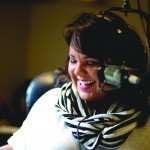
In fact, not being predictable is a hallmark of KABF’s programming philosophy. The standalone community station, whose tagline is “The Voice of the People,” broadcasts 24/7 with a 77-show, 88-DJ schedule that includes a mix of music, talk, and news shows with names like “Young & Unashamed Radio,” “Saturday Night Ramble,” and “Heartbreakers and Rumpshakers.” Almost every genre you can name is covered in the weekly schedule, from the expected jazz and blues to zydeco and psychedelic rock, not to mention the first Latino programming in the state.
The only thing you won’t hear much of on KABF is Top 40. “We don’t play a lot of commercial music,” says Bryan Frazier, the station’s assistant manager. “We’ll play copyrighted music, but not the Top 40 cuts. You can hear those anywhere.” While Frazier admits that some DJs do occasionally dip into Top 40, it’s most likely for either an ‘80s standby or a b-side or an album cut from an artist who might also currently have a hit on commercial radio. “You might know this artist, but you may not know this track…and on commercial radio you will never hear it. It’s that educational element that we’re there for.”
Education and empowerment have been part of the station’s mission since its inception, in 1984. KABF’s founder, Wade Rathke, had founded the Association of Community Organizations for Reform Now (ACORN), a membership organization of low- and modest-income families, in 1970 in Little Rock. ACORN, which eventually grew to have more than 500,000 members working on things like voter registration, affordable housing, and health care in the US and four other countries, was in the early 1970s in Arkansas working to stop inflationary increases in utility rates by campaigning for a ballot measure that would freeze costs for the first 400 kilowatt hours — and the utilities fought back, with thousands of dollars in radio and television ads urging voters to reject the measure. (ACORN won.) In the course of campaigning, Rathke realized that ACORN, with its lower-income members, would never be able to afford the kind of media presence the utilities had been able to buy. So he looked into establishing a noncommercial community radio station. And thus “the voice of the people” was born.
If the phrase “community radio” calls to mind the 10-watt station you might have DJ’ed for in college, think again. Something many people probably don’t realize is that KABF broadcasts at 100,000 watts—that’s as powerful as commercial radio, and as powerful, by law, as radio can get. This allows KABF to extend its mission nearly statewide. “It’s an amazing medium,” says Frazier, “because it’s so
powerful, and to know that this amateur person, this member of the community, is broadcasting almost statewide, even worldwide online — it’s incredible.”
“Public radio is a true medium for the community,” says John Cain, KABF’s program director and one of its very first DJs. “We do specific programming around the needs of the community. Culture-specific programming.” As program director, Cain sees to it that educational programs are interspersed with multicultural music shows, with the aim of providing useful information to people who might not hear it otherwise. “Music is a good hook to get people listening,” Cain said. “Then you can bring an expert in housing or health on the air so they can reach a larger audience.” Cain believes that music can be a vehicle for positive change, and that creativity is good for community. “Music cuts across all boundaries to reach people,” he says. “Our multicultural programming helps people. It’s a process to help people change their consciousness.”
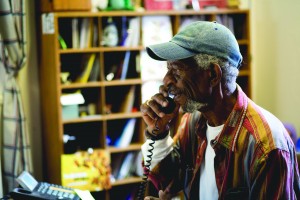
In his nearly 30 years at the station, Cain has witnessed the process of change from the inside out through working with KABF’s DJs. “When they first come, it’s all about them — their creativity, their way of wanting to do their show. But it’s not about them, it’s about the service, the mission, what they’re doing for others. They become dedicated to the mission.”
And they have to be dedicated. “An operation like this — standalone community media — can’t afford to pay people for their diligence,” Cain said. “If you don’t have the mission, you don’t have anything.” Aside from three paid staff members (Cain, Frazier, and development coordinator Carly Garner), the station is manned by volunteers, and once they have the mission, says Cain, “they do what they need to do to sustain their listeners,” who are the station’s primary source of support.
Some of the station’s approximately 50,000 weekly listeners have been with the station for years — something the station can track by paying attention to who calls in and where pledges come from.
“Fundraising initiatives are what sustain us,” Cain said. “Pledge drives are the principal part of that. There comes a synergy that sustains the station. To have people actually put down money out of a paycheck is what drives it, and brings volunteers together.”
Cain said he hasn’t calculated how many volunteer hours the station has logged in 30 years, but it feels like a million. “That’s 24/7, every day, getting a volunteer in to do something good and positive on the broadcast air. We don’t claim to own it,” Cain said. “We are stewards of it.”
VISIT: KABF.ORG

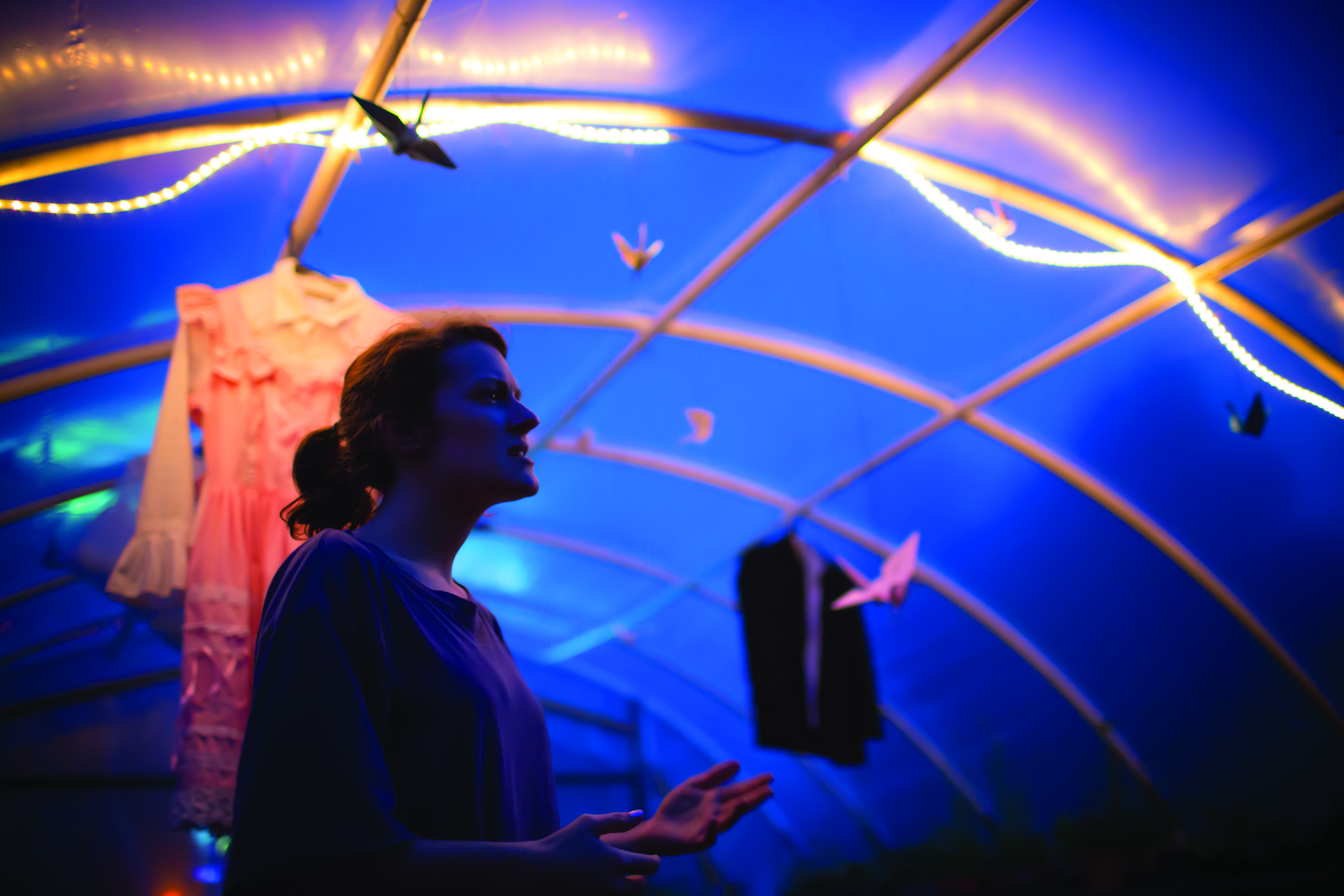

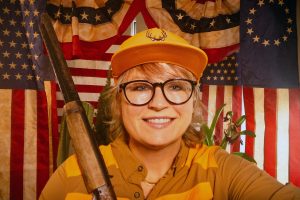

Comments